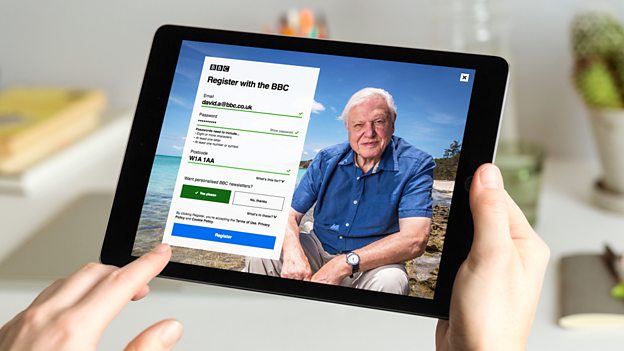Ofcom approves BBC iPlayer’s 12-month catch-up window
David Farnor | On 03, Aug 2019
Ofcom has officially given the green light to the BBC’s plans to extend the catch-up window on BBC iPlayer to 12 months.
The Beeb has been increasingly throwing its weight behind iPlayer, as the platform enjoys strong growth but also faces increasing competition from streaming rivals such as Netflix, Amazon Prime Video and NOW – not to mention ITV Hub and All 4. The plans to expand the service’s presence include making programmes available for at least 12 months after they are first shown, with selected returning titles available as full box sets of all series, more content showcased from the BBC archive and added features such as voice recognition, personalisation and artificial intelligence.
Ofcom, however, ruled last year that any expansions to BBC iPlayer, in particular the extended catch-up window, should be paused until a thorough examination of the “public interest” had been carried out. This week, the organisation confirmed that it had considered the BBC’s public interest test and ruled that the change to the routine catch-up window could go ahead.
The change “could deliver significant public value over time” said Ofcom in its report, saying that it would “increase choice and availability of public-service broadcast content” and “help ensure the BBC remains relevant in the face of changing viewing habits”.
Ofcom noted, however, that it remains concerned about potential competitive challenges, particularly for other public service broadcasters’ video-on-demand services.
“While we have concluded that the public value justifies the adverse impact on fair and effective competition we have identified, and the BBC can proceed with its plans, this is subject to certain conditions and guidance. Our conditions will ensure that the new BBC iPlayer delivers future public value, and will mitigate risks to fair and effective competition.”
The ruling means that most BBC programmes will typically be available for 12 months rather than the previously traditional 30 days, with all children’s programming available for five years.
With the launch of BritBox, BBC’s joint venture with ITV, later this year, though, the landscape is only going to become more complex. Ofcom warned that could be “an adverse competition impact on potential new UK-focused subscription services such as BritBox”. Indeed, shows such as Gentleman Jack will join older titles on the new subscription service – including Love Island, Gavin & Stacey and Broadchurch – but newer titles will only do so when they fall of the relevant broadcaster’s own VOD platform, which means BritBox may have to wait several additional months after its launch for them to be removed from BBC iPlayer.
Ofcom also noted, however, that there is “unlikely to be substantial harm to audiences”.
The BBC will be required to to track the availability and consumption of programmes on BBC iPlayer, to support “greater transparency over the scale and impact of the service”.
“This will make it easier for the BBC and Ofcom to consider the potential impact on competition of any future developments,” added Ofcom.
Ofcom estimates that BBC iPlayer viewing will increase by up to 33 per cent by 2020, including a rise of up to 9 per cent in viewing of children’s shows.
The change will not be immediate, however. The BBC will now have to negotiate any agreements with independent programme-makers to ensure that they have the permission to extend its streaming window beyond 30 days.
BBC submits iPlayer proposals to Ofcom
26th April 2019
Proposals to improve BBC iPlayer for audiences by making programmes available for longer and offering more box sets and archive titles have been submitted to Ofcom.
The BBC is proposing that programmes should be available on BBC iPlayer for at least 12 months after they are first shown; selected returning titles should be available as full box sets of all series; and BBC iPlayer should showcase more content from the BBC archive.
The proposals have been sent to Ofcom for consideration after the BBC carried out a full Public Interest Test which concluded that the proposed changes will create great public value and will not have an adverse impact on fair and effective competition. The changes, the BBC’s test concluded will “bring BBC iPlayer into line with the industry standard”.
“To impose limits on BBC iPlayer – as there are today – risks undermining the BBC’s ability to continue to innovate and evolve its service in line with changing market norms and audience expectations,” added the BBC.
As part of the Public Interest Test, which invited feedback from industry stakeholders, the BBC also commissioned a range of audience research to inform the process. This concluded that 63% of people surveyed felt the changes would deliver better value for the licence fee, and 66% of people surveyed felt the changes would make BBC iPlayer more appealing to people generally and 63% felt the changes would make it appeal to a wider variety of people.
Charlotte Moore, Director, Content, says: “Audience expectations have changed dramatically, viewers are now used to being able to watch what they want when they want, and they expect much more from BBC iPlayer.
“We want to make the best UK programmes available to audiences for longer and provide a range of series and box sets for everyone to enjoy. This will bring the BBC iPlayer in line with what other services already offer and give audiences even greater value for their licence fee.
“The media landscape is changing rapidly, and global media giants are increasingly dominant. We hope Ofcom can consider these plans quickly and enable us to deliver what UK audiences want and expect.”
Following the submission of the BBC plans, Ofcom will complete a BBC Competition Assessment before making a decision on whether these changes can go ahead.
Ofcom pauses BBC plans for iPlayer expansion over competition concerns
3rd November 2018
Ofcom has paused the Beeb’s plans to expand BBC iPlayer, over apparent concerns for its commercial competitors.
The BBC has made no secret of its plans to grow iPlayer into a digital hub in its own right, evolving it from a catch-up destination to a platform for long-term box sets, with such additional features as voice recognition, personalisation and artificial intelligence. Indeed, the BBC is facing a tough test in the current online marketplace, as Netflix, Amazon Prime Video and others enjoy rapid growth – according to recent Ofcom figures, iPlayer is the most popular on-demand service in the UK, used by around a third of the country, ahead of Netflix’s 16 per cent. Around 10 million people visit BBC iPlayer every week. The BBC hopes to double that to 20 million.
Personalisation has already started to be introduced, with box set launches of new programmes alongside their weekly broadcast an increasingly common occurrence – Killing Eve, Trust and Informer are just some of the shows that have been released all-at-once on iPlayer in recent weeks. Over Christmas last year, meanwhile, box sets including Line of Duty and Peaky Blinders delivered BBC iPlayer’s best week on record, with more than 29.4 million requests a day for the additional content. Only last week, the BBC revealed the first of several planned exclusive box sets aimed at young adults, with the debut of The A List, iPlayer’s answer to Riverdale.
But while the BBC and government have agreed to include iPlayer until the TV Licence Fee, the corporation is simultaneously facing financial pressures, which makes it even more of a challenge, as commercial companies such as Netflix can spend far greater amounts on content and marketing. In 2017, the BBC confirmed that £34 million will be spent by the corporation in children’s content and services over the next three years, to help boost its offering for children, both in terms of content and interactivity. Netflix, by comparison, is spending $8 billion on content this year. While the streaming giants can splash £100 million on The Crown, for example, the Beeb is under pressure by the government to cut its costs by around £800 million.
One option considered has been to launch a paid subscription streaming service for shows from the BBC’s archive, alongside ITV and Channel 4. Even with talks resuming once again earlier this year, though, that idea is yet to gather any steam.
Any further official expansion, meanwhile, has been placed on hold by Ofcom, which claims that there are concerns about the “public interest” involved in iPlayer’s success as it could impact other, commercial streaming services, including ITV Hub, All 4 and My5.
“As a result of the BBC offering substantial amounts of extra content, free of charge and free from advertising, commercial video-on-demand services may be squeezed and find it harder to make money from their own content,” said Ofcom in a report released yesterday.
“We support the BBC’s ambition to evolve and renew its content and services,” it added, “but we are also mindful that when the BBC wishes to make changes, this could significantly affect competition in the wider UK media market.”
For example, the changes might “[crowd] out investment in UK content and services from other companies, which could ultimately reduce choice for viewers and listeners”.
“While the BBC faces increasing competition from the likes of Netflix and Amazon Prime, in the UK it remains a large organisation with a unique funding mechanism,” commented Ofcom.
The regulator will allow the BBC to keep its current box sets and add other series already approved for distribution on BBC iPlayer, but further plans beyond “minor changes” must be halted until a public interest test has been carried out. This test will involve the corporation fully considering competition concerns if a new and improved iPlayer were developed and launched. The BBC Board originally assessed its planned changed and decided they weren’t material enough to warrant a public interest test. Ofcom, however, disagreed.
A BBC spokesperson told The Telegraph: “BBC iPlayer is vital to our audiences, particularly younger ones – it’s the way they increasingly consume content. Our approach is simply about making the iPlayer a better experience for users with the great British content they love, such as Bodyguard, Killing Eve and Blue Planet II. The reality is that we are operating in a UK market which has changed fundamentally with the advent of global tech giants who have deep pockets but do not reflect Britain and all its diversity. Ultimately, we need to ensure that regulation acts in the interest of the wider public and supports the healthy future of Britain’s creative industries. We are sure Ofcom will recognise that.”



















